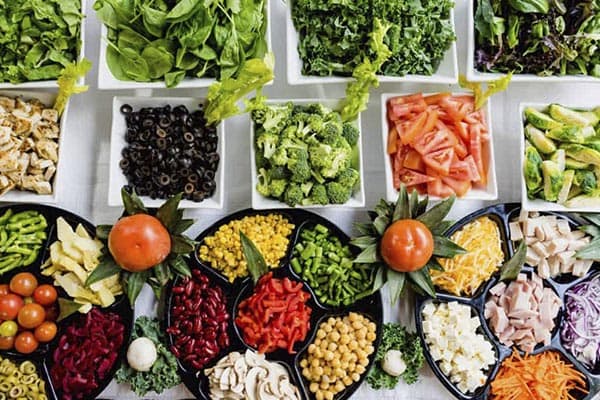I’ll get this out there right away so I don’t waste your time: I’m not a vegan or a vegetarian, far from it. I have found healing for my body largely using the Autoimmune Protocol, which relies on grassfed meat, offal, and seafood as protein sources. While I don’t follow the protocol at this time, I still try to focus on nutrient dense foods as much as possible, and for our family, that includes plenty of meat and fish!
Drink water
One of the easiest beginner steps to healthier eating habits is cutting out any sweet drinks and drinking water instead (psst- this will also save you $$!). May as well kick the coffee to the curb while you’re at it (or at least cut back on the multiple extra cups of it that you could do without).
Even fruit juice with no added sugar is really not healthy, as many folks believe; you (and your kids) are much better off eating the actual fruit with all its fibre instead of drinking juice. One glass of apple juice is made with approximately three whole apples! So you’re getting all of the sugar of THREE APPLES, but none of the fibre.
If you have extra dough kicking around (or maybe all those extra $$ you’ve saved by switching to water as your drink of choice), I highly recommend investing some sort of water filtration system. Ours is a reverse osmosis (RO) system from a company here in town, while some of my family members have Berkeys which they say they can’t live without.
I’d suggest looking into some options and find something that will work for your family, lifestyle and budget! Choose a system or filter that takes the nasties such as chlorine and fluoride out of your drinking water. After our RO system was installed, I belatedly thought about the fact that the reservoir container is made of some type of plastic, which potentially makes the Berkey a cleaner option with its stainless steel drum.
Cut out the snacks
If you’ve already mastered the water-instead-of-other-liquids situation, the next step might be to ensure you’re eating well balanced meals that keep you full for longer and eliminate the need for snacks! This may not work for everyone, as individual metabolism and nutrition needs vary.
For myself, I know to include plenty of healthy fats (such as half an avocado) and protein along with my veggies (starchy and non-starchy) at breakfast, lunch, and dinner. If I don’t do that and I’m not feeling satiated following my meal, I go searching for sweet foods…things that just don’t fill me up and then I reach for more…you get the picture.
Eating after your final meal of the day, which ideally would be a few hours before bedtime, is not recommended.
Switch out fats
Contrary to popular belief, fat in your diet is essential for many functions in your body. Preferably, you want to consume solely healthy fats and oils. If you use margarines, canola oil or other vegetable oils, it’s time to switch out your fats!
Whole foods are always the best option for any nutrients you need, and fat is no different. Choose avocado, wild caught salmon, sardines, nuts, and coconut. I hesitate to include dairy products such as yogurt and cheese, since so many people have intolerances to dairy, but if you do enjoy these and tolerate dairy, try to source grass fed options.
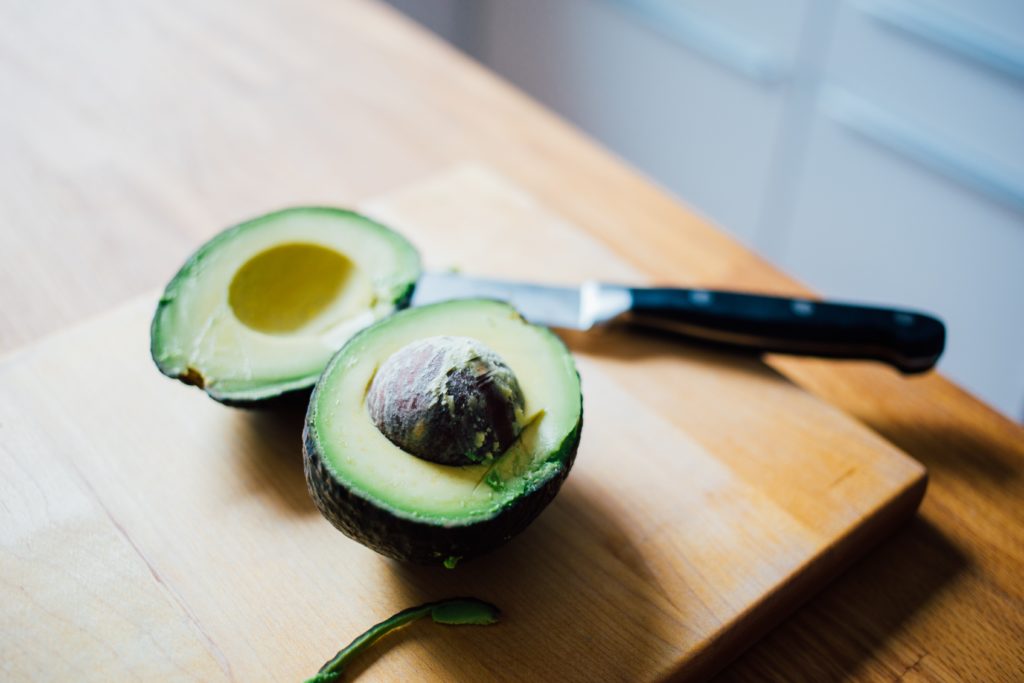
Healthy options for cooking oils and fats include olive oil, avocado oil, and coconut oil, as well as fat from grassfed or pasture raised animals, ie. tallow and lard. Red palm oil is a controversial one but I believe used in moderation is beneficial for your health.
Changing your diet to avoid deep fried foods is also a good way to cut back on the unhealthy oils you consume. Now is the time to donate your deep fryer;).
Avoid sugar
I know, I know, you’ve heard it before and you’re tired of hearing it. But if you want to feel and look your very best, there is no way around it. You must cut out sugar.
I don’t mean the fruit you eat but I most certainly do mean the scoops of sweetener in your coffee, and the puddles of syrup on your pancakes. Even the actual pancakes, if they include sugar and are full of refined carbs.
Even if you only use maple syrup or honey or coconut sugar, you still need to limit those as much as possible. The first couple of weeks are so hard to stay on track with this, but once you beat those cravings it becomes much easier.
Add more vegetables
It’s strange but true, in my experience: the more you eat vegetables, the more you want to eat them and even crave them! Don’t overdo it on the starchy veggies or you may throw your gut bacteria out of balance. Just try to eat a wide variety of vegetables throughout the week, and be sure to include veggies in every meal of the day. They should make up the bulk of your meal.
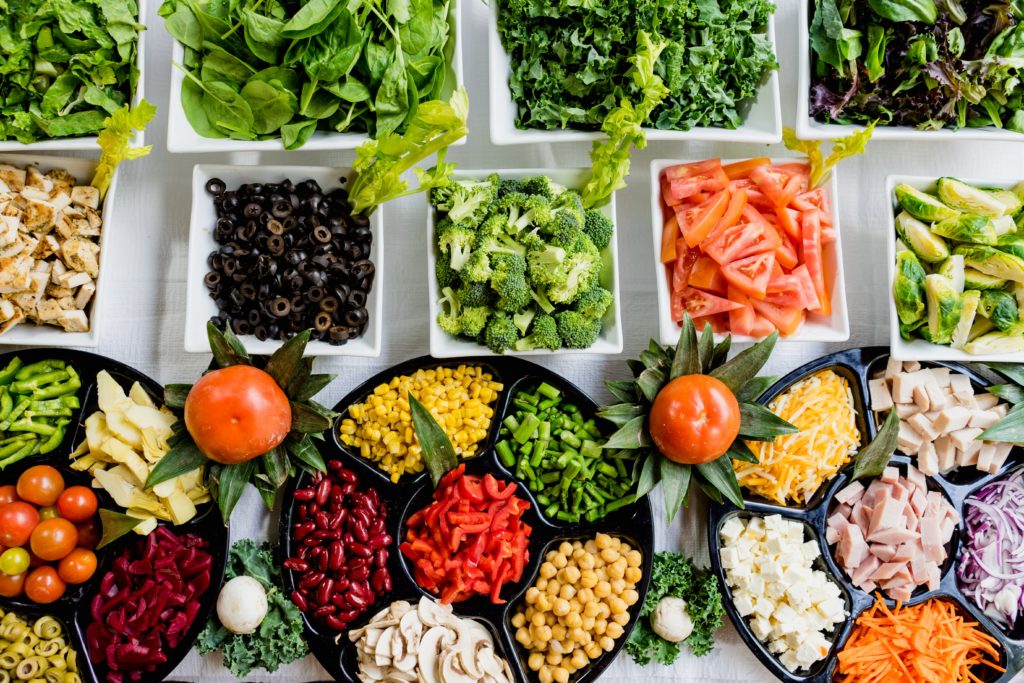
Something else to try: add a scoop of kimchi or raw sauerkraut to your meals, or drink a few sips of kombucha. Fermented foods in basic terms bring good bacteria to your intestines. This has a wealth of benefits for your gut health. These include but are not limited to: digestion of many of the foods you eat, production of many vitamins that your body needs, and fighting bad bacteria that you inevitably ingest every day.
Add liver
Grass-fed beef liver, that is. “But it’s so disgusting!” you might say. And you know, I have to agree with you there. However, this chart clearly outlines why it’s a good idea to get over the disgust and just eat it.
Did you know that grass fed beef liver contains more than three times as much vitamin C as an apple, almost four times as much magnesium and almost 3 times as much potassium (when comparing same weights of each)? Not to mention all the B vitamins.
Take it in pill form if you must, but do try to add grass fed beef liver to your plate regularly!
Rename your meals
We have such an ingrained idea of what “breakfast” should be. Generally speaking, pancakes, waffles, breakfast sandwiches and oatmeal, among others, are considered “breakfast foods”. What if we called breakfast, lunch, and dinner, meals one, two and three instead?
For me, this mind game really helped. Now I have no qualms about eating soup or leftovers- or even salad!- for breakfast. It’s not uncommon to find fish on my plate in the morning alongside a roasted vegetable mixture (reheated) and some guacamole!
Some people genuinely can’t stomach many things in the morning. But ideally, find some way to get vegetables, protein, and healthy fats into your first meal of the day. That will really set you up for success for the rest of the day. Or, move on to the next suggestion, where you can choose to eat a later meal in the morning, at which time you may be less queasy about your food choices.
Consider fasting
To give your digestive system a break, eat mindfully. Not only being mindful of what you are eating, but also when you’re eating. I find myself randomly snacking when I’m not even thinking about it and not even hungry, which is far from ideal.
Why? Continual grazing, snacking, or eating frequent meals confuses your body’s natural systems. I won’t get into crazy detail here, but read this short, succinct overview of the migrating motor complex, for example. When this natural process is messed with by the aforementioned snacking, the unfortunate result is that you can run into all sorts of problems such as small intestinal bacterial overgrowth (SIBO).
Fasting doesn’t have to mean going days without food. It can be as simple as just being mindful to leave 14 hours food-free overnight (which most people do naturally anyway) to allow your body to rest from digestion.
Believe me when I say you don’t want those negative consequences of too much/ improper eating. The reason I’m passionate about all the things I write about on my blog is because I didn’t know any of it for many years, and destroyed my gut meanwhile. It’s a whole lot harder to get things back on track after the damage has been done!
Read labels
When you can’t read the words on labels or don’t know what they mean, chances are you shouldn’t be putting it in your mouth. Best plan of action? Buy whole foods only, the kind that doesn’t need a label. You’ve heard it before…stick to the outside aisles at your local grocery store. In general that’s true…except most grocery stores around here have their bakeries around the edge, so there’s that…
Some of you will mention the cost of real, whole foods. I’m not going to argue with you. It is most definitely more expensive- at least in my area- to eat a clean diet. I would suggest to those of you on a tight budget to really prioritize where you’re willing to spend more and where you can save. Keep in mind that clean meat (grass fed beef or lamb, pasture raised pork, wild caught fish) is really important. You may choose to spend more there and less on organic produce, specifically if it’s not on the current dirty dozen list.
If at all possible, grow your own vegetables in the summer using my tips for a productive garden. And check out Living Traditions Homestead for ideas about raising your own meat! I was amazed to learn how easily it can be done, even in a very small yard.
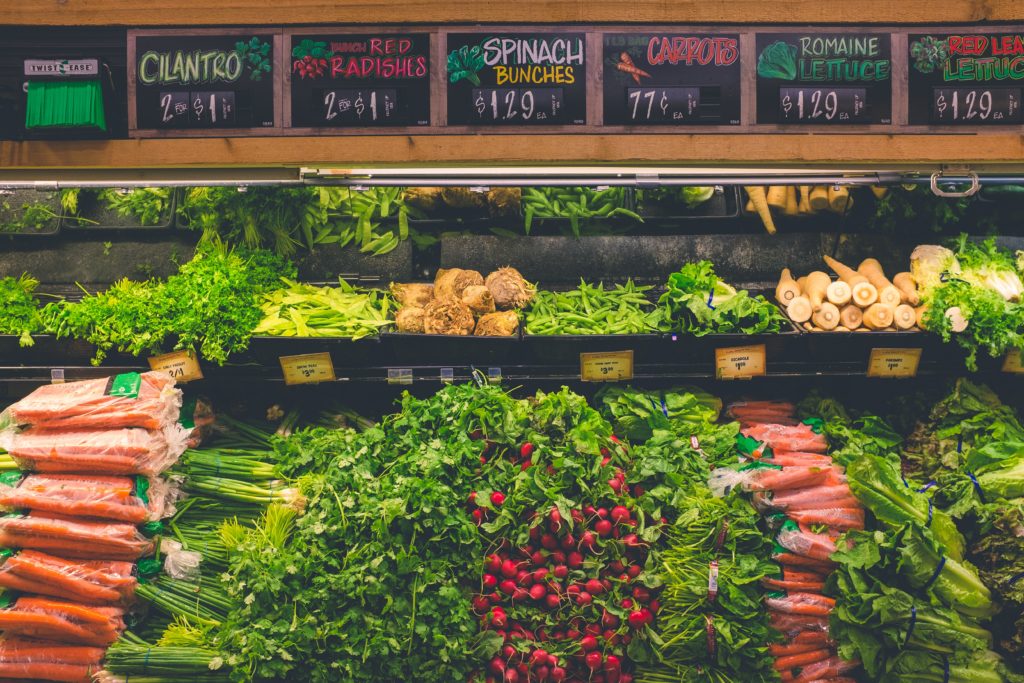
Meal plan and prep
This can help you stay on track and not waste leftovers and fresh grocery items. Now, someone like me feels rebellious when I have a plan that I need to follow! So what works better for me is having a list of meals that the whole family enjoys, grocery shopping for the items needed, and then just picking and choosing each day what I will prepare for that day.
Scheduling a few hours for meal prep, perhaps on the weekend, is a wise idea if you work outside the home and simply don’t have the time every day to prepare a meal from scratch. Or if you just can’t abide the thought of cooking every day! I love to make Lisa Bryant’s Loaded Breakfast Casserole and then serve it up for meal one (or two or three!) for the next several days. It’s delicious, hearty, has quite a few veggies, and makes a large 9×13 casserole.
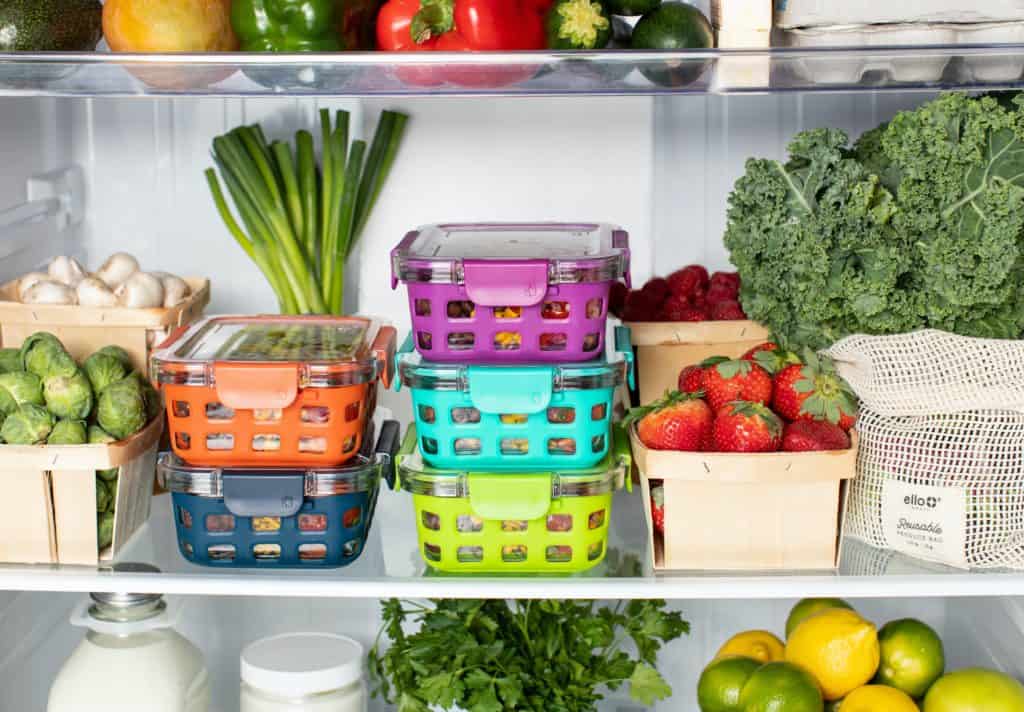
In conclusion
Keep in mind, these are only suggestions! Your digestion will vary from your significant other’s, your children’s, your best friend’s, and mine. Something that can be invaluable is keeping a food diary (BONUS TIP!). Record everything you eat and at what time, and then keep note of any symptoms, how you’re feeling physically (ie. bloating or other digestive symptoms), your mood, how you’ve slept. It’s so encouraging and empowering when you start feeling better and happier due simply to some tweaks to your diet!

